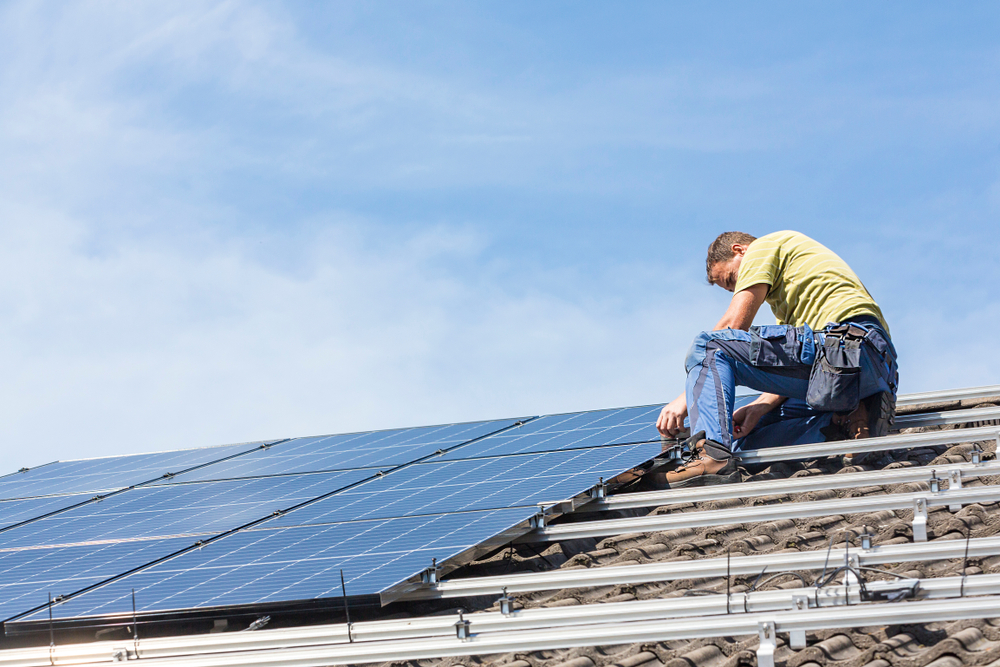Introduction
Deciding between roof mount and ground mount solar panels depends on several factors including your property type, available space, and budget. Each installation method has its unique benefits and challenges. Whether you’re looking to maximize efficiency, save on installation costs, or maintain aesthetic appeal, understanding these options is key to choosing the right solar system for your needs.
What Are Roof Mount Solar Panels?
Roof mount solar panels are installed directly onto your building’s roof. They are often the preferred choice for residential installations and commercial buildings with limited land space. These systems use the roof’s existing structure to support the solar panels, optimizing available space and minimizing additional ground work.
What Are Ground Mount Solar Panels?
Ground mount solar panels are installed on a structure or frame at ground level. This method is common for properties with ample open space and can be ideal for both residential and commercial applications. Ground mounts offer flexibility in orientation and tilt, which can maximize energy production in various sunlight conditions.
Pros and Cons of Roof Mount Solar Panels
Pros
- Space Efficiency: Utilizes existing roof space, which is particularly advantageous in urban or suburban areas with limited land.
- Lower Installation Costs: Often cheaper to install because there is no need for additional mounting structures or extensive ground work.
- Aesthetic Integration: Discreetly blends into the architecture of your home or building, maintaining curb appeal.
Cons
- Roof Condition Dependency: The effectiveness of roof mount systems depends on the condition and angle of your roof, which might require repairs or adjustments.
- Limited Adjustability: Once installed, the tilt and orientation are fixed, potentially reducing the system’s ability to capture optimal sunlight throughout the year.
- Maintenance Challenges: Roof access can be more difficult and may involve higher costs for cleaning and repairs.
Pros and Cons of Ground Mount Solar Panels
Pros
- Optimal Orientation: Ground mounts can be easily adjusted for tilt and orientation, ensuring maximum exposure to sunlight and improved efficiency.
- Accessibility: With panels installed at ground level, routine maintenance and cleaning are generally easier and safer.
- Flexible Placement: They can be positioned to avoid shading and take advantage of the best sun angles, which is particularly useful for larger systems.
Cons
- Space Requirements: Requires sufficient open space, which may not be available on smaller properties.
- Higher Initial Costs: The need for specialized mounting structures and additional groundwork can increase installation costs.
- Visual Impact: Ground-mounted systems may be more noticeable, potentially impacting the aesthetics of your property.
Key Factors to Consider
When choosing between roof mount and ground mount solar panels, consider these factors:
- Available Space: Evaluate your property to determine whether you have more usable roof space or open land.
- Sunlight Exposure: Consider the sun’s path and any potential shading issues that could affect the performance of your panels.
- Budget: Analyze the upfront installation costs as well as long-term maintenance expenses for each option.
- Aesthetic Preferences: Think about how the solar system will integrate with your property’s overall appearance.
- System Efficiency: Decide if the adjustability of ground mounts for optimal sunlight capture outweighs the simplicity of roof mounts.
Installation and Maintenance Considerations
Both installation types come with unique challenges and advantages:
- Roof Mount: Installation may be less invasive, but you’ll need to ensure your roof is structurally sound. Future roof repairs or replacements could affect your solar panels.
- Ground Mount: While offering superior adjustability and easier maintenance, ground mount systems may require additional permitting and more significant site preparation.
Working with an experienced solar installer can help navigate these challenges, ensuring that your system is both efficient and durable.
Conclusion
Both roof mount and ground mount solar panels have distinct advantages and potential drawbacks. Your choice will depend on your property’s layout, your budget, and your long-term energy goals. Roof mounts are excellent for those with limited space and a desire for a seamless installation, while ground mounts offer flexibility and easier access for maintenance.
By carefully considering these factors, you can select the solar panel system that maximizes your energy production and provides a solid return on investment.




